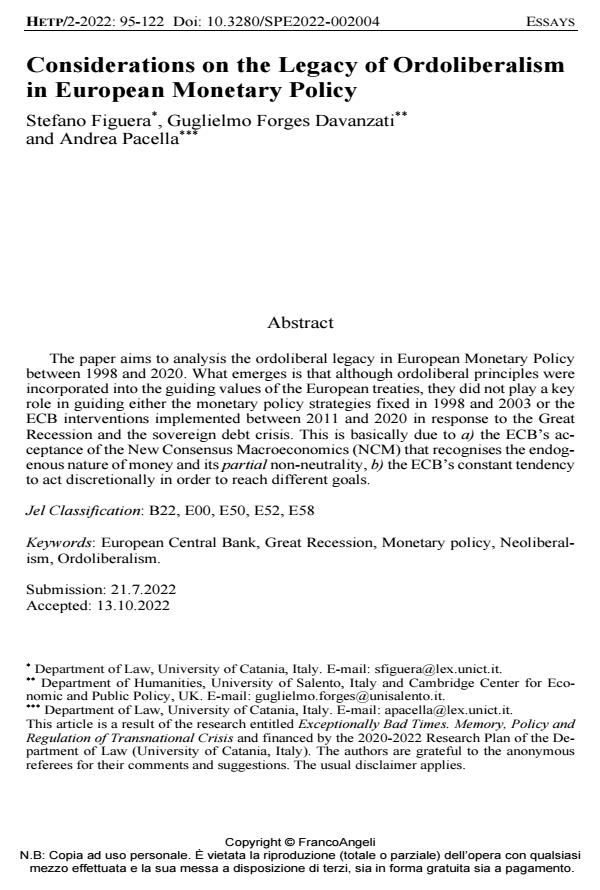Considerations on the Legacy of Ordoliberalism in European Monetary Policy
Journal title HISTORY OF ECONOMIC THOUGHT AND POLICY
Author/s Stefano Figuera, Guglielmo Forges Davanzati, Andrea Pacella
Publishing Year 2022 Issue 2022/2
Language English Pages 28 P. 95-122 File size 147 KB
DOI 10.3280/SPE2022-002004
DOI is like a bar code for intellectual property: to have more infomation
click here
Below, you can see the article first page
If you want to buy this article in PDF format, you can do it, following the instructions to buy download credits

FrancoAngeli is member of Publishers International Linking Association, Inc (PILA), a not-for-profit association which run the CrossRef service enabling links to and from online scholarly content.
The paper aims to analysis the ordoliberal legacy in European Monetary Policy between 1998 and 2020. What emerges is that although ordoliberal principles were incorporated into the guiding values of the European treaties, they did not play a key role in guiding either the monetary policy strategies fixed in 1998 and 2003 or the ECB interventions implemented between 2011 and 2020 in response to the Great Recession and the sovereign debt crisis. This is basically due to a) the ECB’s acceptance of the New Consensus Macroeconomics (NCM) that recognises the endogenous nature of money and its partial non-neutrality, b) the ECB’s constant tendency to act discretionally in order to reach different goals.
Keywords: European Central Bank, Great Recession, Monetary policy, Neoliberalism, Ordoliberalism.
Jel codes: B22, E00, E50, E52, E58
- The Theoretical Basis of the Extraordinary Intervention in the Italian Mezzogiorno (1950–1993) Guglielmo Forges Davanzati, Rosario Patalano, in Italian Economic Journal /2026
DOI: 10.1007/s40797-025-00361-2
Stefano Figuera, Guglielmo Forges Davanzati, Andrea Pacella, Considerations on the Legacy of Ordoliberalism in European Monetary Policy in "HISTORY OF ECONOMIC THOUGHT AND POLICY" 2/2022, pp 95-122, DOI: 10.3280/SPE2022-002004